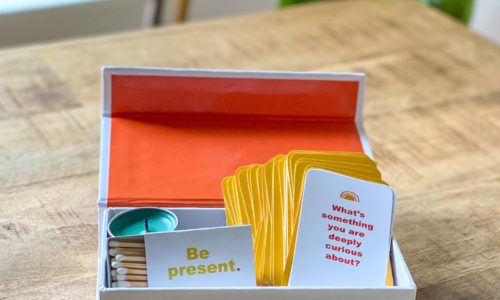There are two ways to kill an after school discussion:
1) Ask, “How was your day?”
2) Ask, “What did you learn today?”
I’ve used both of these. My children told me to stop. Charlie said, “Mom, the last thing I want to talk about after school is what I learned. We’ve been talking about it all day.”
This is a time to use the Acton Academy strategy at home. Asking good questions is the basis of the Socratic Method. It works for parents, too.
Here is a cheat sheet for you:
1) Refrain from open-ended questions such as “What do you think about…..”
Instead, ask a question with A/B options. For example, “What part of the day was more challenging for you today, project time or core skills time?” You then have the opening to dig deeper. “Was it the discussion that was challenging or the actual work?” or “Which of your goals is the most difficult for you this week?”
2) Ask your child to rate his or her experience.
“On a scale of 1-5, how was your day?” From here, the discussion flows because you can take the rating and ask, “What would have made it better?” or “If you could change one thing in your day, what would it be?” or “Is it the mornings or afternoons you like better?” or “Is it your friends or the school work that contribute most to your rating of your day?”
3) Create a simple scenario that forces a decision or a choice to be made. Ask your child what he or she would do.
“Imagine that you were in charge of the school day but there was one requirement: you had to take one thing out of the schedule. What would you take out? Why?” or,
“Imagine that we are going to create our own school. What is the one part of Acton you would make sure we included?”
In addition to these ideas for creating questions that will be answered, we have two favorite conversation starters for our dinner time:
1) High/Low: Family members take turns sharing their “high” of the day and their “low” of the day.
2) Two truths and a lie: Each person says two truths and one lie about his or her day. The others try to guess which statement is the lie. (This idea came from the Stakers, I believe.)
Once the questions are asked, the next skill is to listen openly without an agenda and without judgment. This can be extremely challenging but it is where the fun really begins. I hope you’ll share your tips and stories, too.


